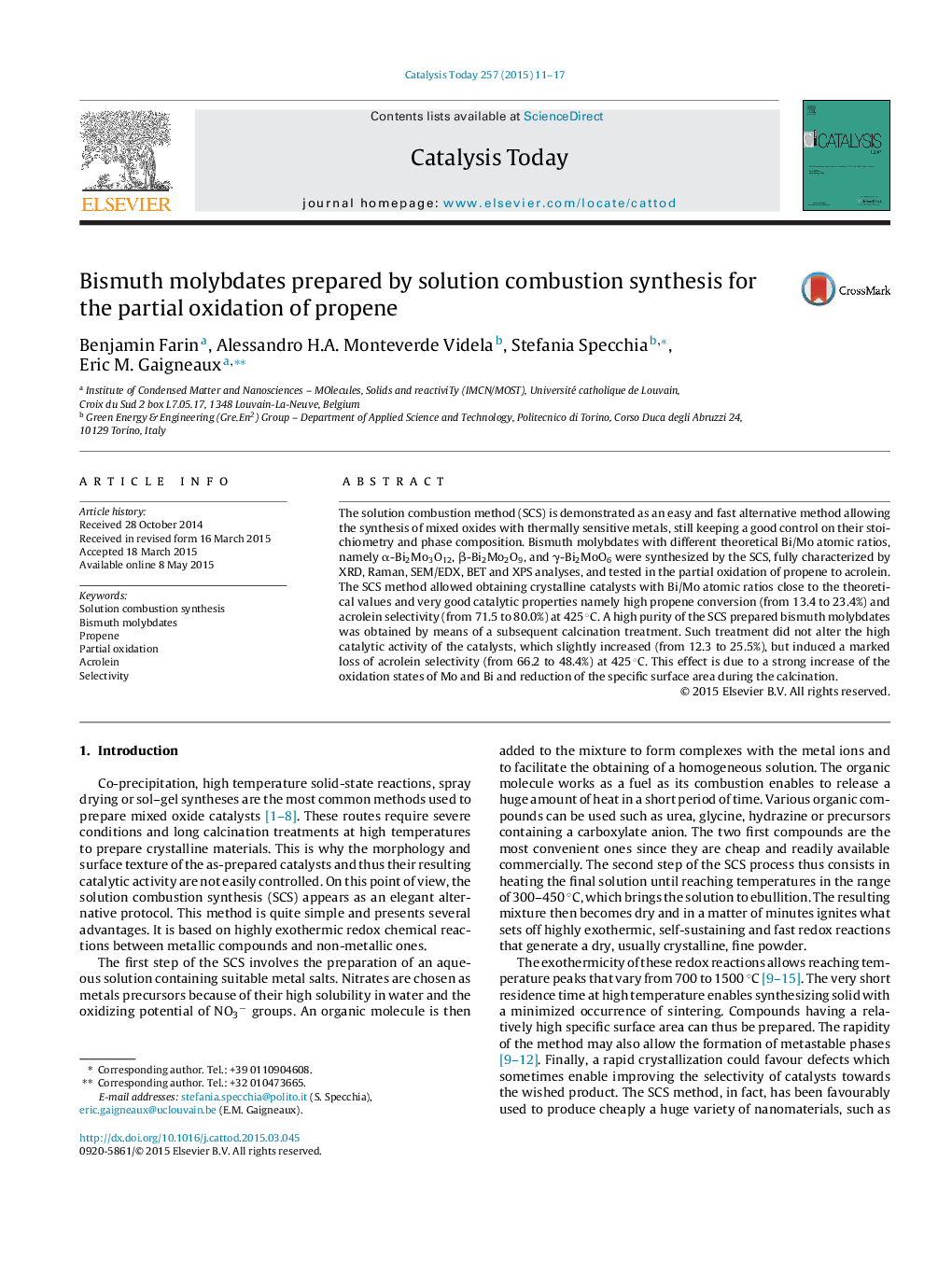| Article ID | Journal | Published Year | Pages | File Type |
|---|---|---|---|---|
| 53572 | Catalysis Today | 2015 | 7 Pages |
•Bismuth molybdates with different Bi/Mo atomic ratios were prepared by SCS.•Fresh SCS catalysts showed outstanding acrolein selectivity and yield.•Calcination in air at 425 °C increased the purity of the SCS catalysts.•Calcination treatment affected acrolein selectivity but not propene conversion.•SCS method is suitable for preparing active catalysts.
The solution combustion method (SCS) is demonstrated as an easy and fast alternative method allowing the synthesis of mixed oxides with thermally sensitive metals, still keeping a good control on their stoichiometry and phase composition. Bismuth molybdates with different theoretical Bi/Mo atomic ratios, namely α-Bi2Mo3O12, β-Bi2Mo2O9, and γ-Bi2MoO6 were synthesized by the SCS, fully characterized by XRD, Raman, SEM/EDX, BET and XPS analyses, and tested in the partial oxidation of propene to acrolein. The SCS method allowed obtaining crystalline catalysts with Bi/Mo atomic ratios close to the theoretical values and very good catalytic properties namely high propene conversion (from 13.4 to 23.4%) and acrolein selectivity (from 71.5 to 80.0%) at 425 °C. A high purity of the SCS prepared bismuth molybdates was obtained by means of a subsequent calcination treatment. Such treatment did not alter the high catalytic activity of the catalysts, which slightly increased (from 12.3 to 25.5%), but induced a marked loss of acrolein selectivity (from 66.2 to 48.4%) at 425 °C. This effect is due to a strong increase of the oxidation states of Mo and Bi and reduction of the specific surface area during the calcination.
Graphical abstractFigure optionsDownload full-size imageDownload high-quality image (114 K)Download as PowerPoint slide
